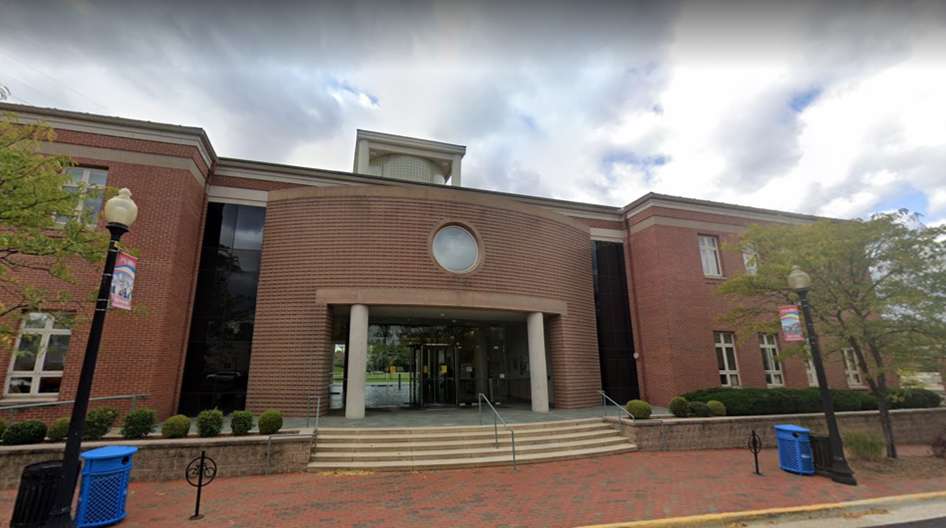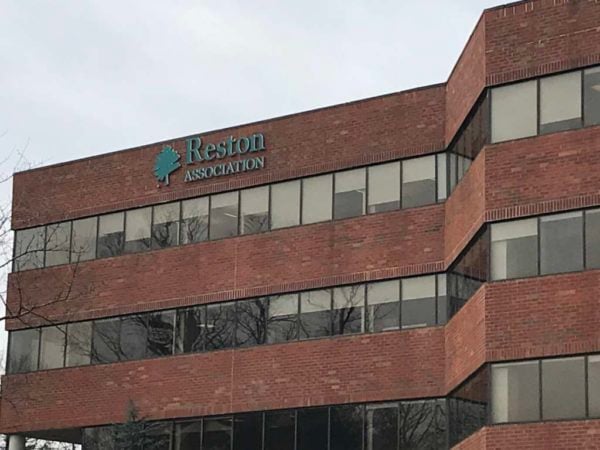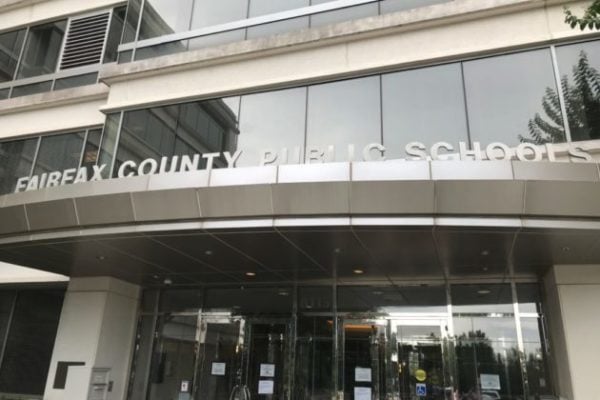As Herndon’s manager and council consider the upcoming budget, a six-year plan of infrastructure projects is up for discussion again.
The list could contain 55 projects, including seven new ones, that would collectively require $177 million.
Numerous sources would cover the costs, such as nearly $53 million from Virginia Transportation Department Smart Scale funding, $17.3 million from federal funding, nearly $14.6 million from the American Rescue Plan Act, nearly $13.9 million from town enterprise funding (consisting of user fees for services such as water and sewer) and $11.1 million from government bonds, according to a town presentation.
Town manager Bill Ashton is compiling the list for the town council, which would approve it for the upcoming 2023 fiscal year that starts July 1, 2022.
While a rolling list of projects was approved last year, new projects could include:
- $1.6 million for the municipal center’s fire alarm system due to a fire marshal directive.
- $225,000 for upgrading a police records management system that can address evolving data mandates and technology standards. The town says a vendor is moving away from an outmoded product line to a new dispatch-records system, and the cost would cover purchasing the new system, vendor support and data migration.
- $200,000 for a Herndon Metrorail promenade. A 500-foot-long gateway plaza some 60 to 70 feet wide would connect the new Metro stop to Herndon Parkway. The town expects developer contributions to assist with the project.
- $200,000 for upgrading council chambers’ technology equipment, such as gallery audio and additional lighting for improving webcasts and recordings.
- $100,000 for updating an aquatic office to expand and split a small shared office space for three full-timers into separate work areas.
- $30,000 for Center Street culvert improvement to improve a pedestrian route, barriers and fencing across from the Herndon municipal garage near the library.
- $25,000 for converting a softball field at Bready Park into eight pickleball courts.
Town guidelines call for contributing about $1 million in general funds from fiscal year 2024 to 2028.
Photo via Google Maps
Men Charged for Stealing Car — After a short police pursuit, two men in their 20s were charged with grand larceny in connection with the theft of a 2017 Honda Pilot that was reported stolen from a nearby jurisdiction. Both men are from Springfield. [Fairfax County Police Department]
Metro Seeks Feedback on Budget — Metro is seeking feedback on its upcoming budget. Three pubic hearings are slated for this month. Feedback is due by Feb. 15 at 5 p.m. [Washington Metropolitan Area Transit Authority]
Test-to-stay Option Opens in Some Schools — The school system has launched test-to-stay programs at seven public schools, including at South Lakes High School. [WTOP]
Photo by Terry Baranski
 This is an opinion column by Del. Ken Plum (D), who represents Reston in Virginia’s House of Delegates. It does not reflect the opinion of Reston Now.
This is an opinion column by Del. Ken Plum (D), who represents Reston in Virginia’s House of Delegates. It does not reflect the opinion of Reston Now.
Eight-year-old Virginia O’Hanlon wrote a letter in 1897 to the editor of the New York Sun asking if there was really a Santa Claus. The editor’s response–“yes, Virginia, there is a Santa Claus”–became what is believed to be the most repeated editorial of all times. As the editor explained, “he exists as certainly as love and generosity and devotion exist.”
Virginians, not just by that name but residents of the Commonwealth as a whole, became true believers in Santa Claus last week as Governor Ralph Northam presented his proposed budget for the next biennium. Record levels of revenue are available for appropriation as the state has been frugal during the pandemic while receiving record amounts of revenue from the federal government as well as a recovering economy. The Governor’s proposed budget is his last as he leaves office in January, and it will be up to the new governor and the General Assembly to decide what really happens to the additional monies. Certainly a wide range of requests that have lingered for years will be considered for funding.
Virginia is a triple A rated state financially, the best rating a state can receive, and is a repeat winner of the designation as the best state in which to do business. Of the $7.7 billion in new monies, Governor Northam has proposed that the biggest chunk amounting to $1.7 billion go to the “rainy day” reserves to help in future years if funding is short. Another billion dollars would go to the retirement system to reduce unfunded liabilities. Some of the new money would go into one-time capital projects rather than recurring cost projects including money for much-needed repairs to school buildings in some localities.
State employees and teachers whose salaries have lagged the private sector will receive a boost with teachers’ salaries projected to finally meet the national average. Much needed funds for mental health and public safety are also included.
The proposed budget includes $2.1 billion in tax policy adjustments that will be welcomed news to many taxpayers. The budget includes the elimination of the state’s 1.5% share of the sales tax on groceries that will be most helpful to low-income persons. In addition the budget includes one-time economic growth tax rebates of $250 for individuals and $500 for married couples. For the first time the Governor includes a proposal that I have introduced many times that would fund up to 15% of the federal Earned Income Tax Credit (EITC) for eligible families. Accelerated payment of the sales tax by merchants would also be eliminated.
Historically Black Colleges and Universities (HBCUs) would receive $297 million more for capital improvements, student support, and other needs if the budget is approved as proposed.
The proposed budget goes to the General Assembly where it must be approved by both houses. The new governor is certain to have some ideas as to how he would like to see the budget modified. Hopefully, however, there will not be too many grinches who will seek to spoil this wonderful holiday gift Governor Northam delivered.
 This is an opinion column by Del. Ken Plum (D), who represents Reston in Virginia’s House of Delegates. It does not reflect the opinion of Reston Now.
This is an opinion column by Del. Ken Plum (D), who represents Reston in Virginia’s House of Delegates. It does not reflect the opinion of Reston Now.
A combination of an economy producing much more strongly than expected during the pandemic and a frugal state budget in anticipation of a revenue shortfall combined with several federal programs sending enormous amounts of cash to the states has resulted in Virginia having a strong cash position–possibly the greatest ever. Some choose to call the available cash a surplus, but I think a much more accurate term to describe it is an unappropriated balance. The amount involved is more than four billion dollars!
Using the term surplus implies to me that the needs of the state have been met and that there is money left over. As I indicated above, the existing state budget was put together with a very conservative estimate of tax revenue based on a contraction in the economy. Programs were minimally funded or needs were not addressed in order to ensure that the budget would be balanced at the end of the year as constitutionally mandated. Likewise, the availability of cash flowing from the federal government has been much greater than ever before with an expectation that even more dollars will be coming to the states.
With the numerous challenges facing government in general it is reassuring that the availability of funding will not be as great an issue as it has been in recent years. The list of unmet needs for those who view government’s role broadly can be reduced by the available cash. For others, the availability of cash in government coffers raises the prospect of tax cuts. The incoming governor has indicated that he favors tax cuts. Virginia’s tax rates are among the lowest in the country and should a policy of tax reductions be pursued it should be targeted to those with the lowest income.
Certainly tax revenues should never be allowed to exceed the wants and needs of citizens for government services. When there are dollars available the question becomes one of giving monies back to citizens in the form of tax reductions or rebates or using it to provide needed services. Cutting taxes is an approach that is appealing to most politicians and is one that I think should be pursued when it can be done responsibly. In Virginia at this time I believe there are too many unmet needs to be doing anything in the budget other than providing funding for programs and services that have been needed but unfunded for years.
There is a waiting list estimated at over 12,000 individuals who qualify for assistance because of a developmental disability, but that list is reduced by only a few thousand persons per year with the need growing faster than programs or services to meet them. There is a wide disparity of funding across jurisdictional lines for public education even though there is a composite index that is supposed to smooth out the differences. The lack of equity in funding among counties and cities is unjustifiable as are the differences across colleges and universities. In coming columns, I will be discussing other unmet needs. It is not possible to have a budget surplus when there is so much left to be done!
The Reston Association could increase a yearly assessment fee from $718 by 2.3% or $17.
The increase is in a third budget draft that the association’s board of directors is considering amid a public hearing at 7 tonight. The board could approve the final budget and 2022 assessment at its Nov. 18 regular meeting next week.
The board has been working on the 2022-2023 budget and the association’s annual capital projects. Acting CEO Larry Butler has called for a 3% performance-based merit increase as well as raising salaries for dozens of workers based on a 2019 study to the bottom of their pay ranges. Most of those affected staff would make less than $60,000 with the changes. The third draft also calls for creating two new positions: a senior environmental position and a capital projects manager. The latest proposal also removes three new positions that were being considered.
Around two-thirds of the service organization’s operating costs are personnel, and Butler has suggested that merit increases, which were freezed this year, would help retain the organization staff consisting of around 100 full-timers. High-profile departures affecting its CEO and directors of information technology and human resources have occurred in recent months.
On top of those salary changes and staffing issues, a line item for assessment revenue contains some nuances. For 2021, RA’s 21,230 units is generating around $15.2 million. With a potential assessment fee of $735 and the association identifying 21,350 units for 2022, the yearly assessment revenue would generate just under $15.7 million. But instead of using that figure, budget drafts have listed over $17 million in assessment revenue for 2022.
RA staff said the upcoming budget proposes the use of operating surplus from 2020 and 2021 for the 2022 assessment as well as funds from canceled or reassigned capital projects.
“Fundamentally we are utilizing resources already received from the membership to keep the assessment lower,” RA staff told Reston Now.
The third draft also calls for pushing the Barton Hill tennis renovation and lighting project to 2023 but has planning/engineering money for the project in 2022. The Glade clay tennis renovation project was moved from 2023 to 2022.
Capital project costs also include $1.75 million for Lake Thoreau pool in 2022 and $1.3 million for Shadowood pool in 2023.
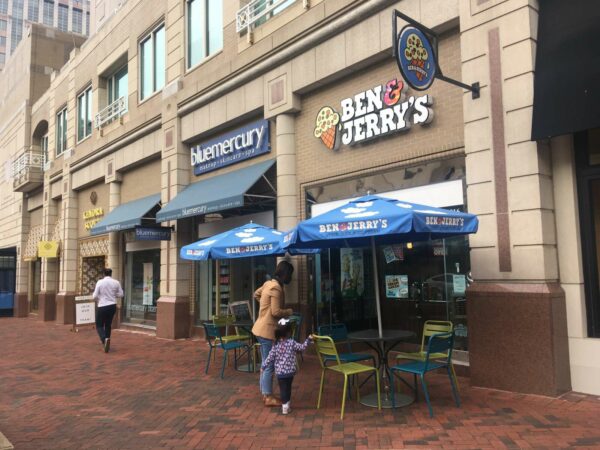
Reston-based Company Makes Acquisition — CACI International, a Reston-based company, has acquired a California-based company for $275 million. The transaction is expected to close by the end of the year for SA Photonics Inc. [Virginia Business]
Reston Next Moves Forward — Boston Properties has officially delivered the first 285,000 square feet of its Reston Next development, which is anchored by Fannie Mae. The project is 85 percent leased overall. [Washington Business Journal]
Town of Herndon Budget Earns Honors — Government Finance Officers Association recognized the Town of Herndon with its budget presentation award. The honor recognizes budgets that work well as a policy document, financial plan, operations guide and communications device. [Town of Herndon]
This Sunday: Change Your Clock — When you move your clock back one hour early on Sunday morning, don’t forget to also check your smoke alarms to make sure they’re working. The Fairfax County Fire and Rescue Department issues a reminder to residents. [FCRD]
Photo by David Taube
People shared their concerns during a public hearing yesterday with Reston Association’s board of directors.
An initial budget has suggested the annual assessment fee could increase from $718 to $764, a 6% increase, though Board of Directors president Caren Anton noted it’s not yet finalized.
People submitted written comments and provided feedback during the virtual meeting.
Butler said the main changes with the budget currently call for:
- Increased costs due to inflation and insurance,
- A 3% merit increase for staff, who received no merit increase this year,
- Increasing various staff salaries to the bottom of pay ranges,
- Increasing base pay for lifeguards as well as covering certifications and recertifications, and
- Adding a senior environmental staff position but not a registrar position.
Butler said aside from the current CEO search, it takes 50 days to fill a vacancy, and he felt it was important to make the salary changes given the difficult job environment.
Speakers took issue with upgrades to Barton Hill tennis courts due to concerns involving driver visibility at a nearby crosswalk during certain times, environmental impacts due to light pollution as well as cost-benefit issues if the association built a covering above the courts.
Butler said RA is no longer considering a covering at this time. The current proposal is to add lighting, repair cracks and add lines on two courts for pickleball.
Mike Sanio submitted a letter, which Anton read into the record, noting the limited availability of lighted tennis and pickleball courts given usage. Other speakers suggested that the association support tennis facilities but in other ways, such as just by maintaining them or making sure there’s enough support before proceeding with lighting upgrades.
Tammi Petrine recommended the association survey its 21,000-plus households rather than pursue proposals for “small groups of vocal people.” She said it could be a working tool and show usage of recreational facilities such as pools and tennis courts and help show what members want and are willing to pay for.
“Why is this not done … maybe every two years?” she said. “We paid $144,000 for a branding study, but we never did a survey, and that seems to be such a useful tool.”
Jordan Fletcher said the the proposed budget call for an 8% increase in staff compensation, among other jumps in costs.
He said the board should carefully consider adding new positions and suggested the association consider factors such as seeing if a service could be automated through information technology, see if underutilized or part-time staff perform similar functions, or look to see if duties could be shifted when new needs arise.
Fletcher also recommended listing all 100-plus positions and their responsibilities and other details to help make more objective decisions.
The association expects another draft to be presented to its fiscal committee on Oct. 20 with the board addressing the second draft at its Oct. 28 meeting.
A second public hearing will be at 7 p.m. Nov. 10.
Reston Association is weighing how it will address expected costs that are projected to rise.
A budget document presented to the board suggested a 6% increase in next year’s assessment, which would potentially move dues from $718 to $764. But acting CEO Larry Butler said the board has a variety of ways to try to address the potential increases in costs, which could include reducing services or a mixture of strategies.
Butler discussed possible funding scenarios at the Board of Directors meeting last week. The second draft of the budget will go to RA’s fiscal committee for review on Oct. 13 following a public hearing on Oct. 6.
The board is expected to hold a second public hearing on Nov. 10 and adopt the final budget on Nov. 18.
The budget for 2021 set $19.2 million for operating revenues. That’s slated to rise to $21.6 million for 2022 and nearly $21.7 million in 2023, where budget documents appear to use a placeholder of an increased assessment fee.
Rather than have an increased assessment fee simply take care of the issue, the board is exploring budget iterations about how to move forward.
“Clearly you can — you can just raise the assessment 15.5%,” Butler said during a Thursday meeting regarding the biennial budget, which would make the assessment $829. “I’m … not recommending that.”
RA is looking to increase operating costs from less than $16 million for its 2021 budget to $17.5 million next year and $17.9 million the following year, based on a budget draft so far.
Around two-thirds of the service organization’s operating costs are personnel, and Butler is strongly recommending a 3% merit-based increase. He suggested that would help retain staff, which total around 100 full-timers.
The association is also looking at a five-year capital projects plan. It calls for improvements to facilities such as pools including Lake Thoreau and tennis courts, of around $3 million to nearly $4 million each year from 2022-2026.
According to a memo from Butler to the board of directors and a fiscal committee, the draft budget called for adding several new positions that include the following:
- a registrar to assist members with online transactions, run reports, improve the customer experience and more; the position would have a total compensation of $60,000 and that could reduce other budget line items by $13,800 with the new position,
- a financial services manager, whose salary and benefits would total $102,000,
- a capital projects manager whose total compensation would be $84,000,
- an applications analyst, whose duties would include but not be limited to data analytics, with a compensation package of $108,000.
The association is also eyeing whether it would replace or change current openings that involve a director of information technology and an aquatics program manager.
Despite the draft budget discussed, the association says a preliminary budget is not yet available.
RA spokesperson Mike Leone said in a statement, “The Board of Directors, Fiscal Committee and RA Staff are working to develop a draft budget for discussion at the Oct. 4 Board Budget Work session.”
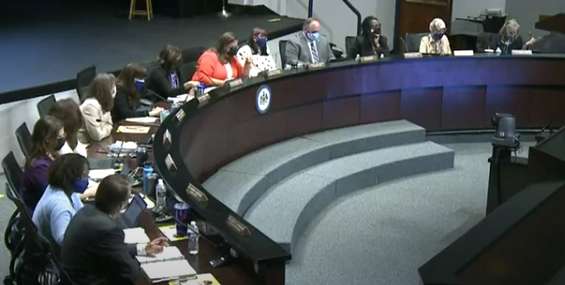
The Fairfax County School Board approved bonuses for all public school employees yesterday (Thursday) in a gesture intended thank them for their work during the pandemic.
According to Fairfax County Public Schools, the district had $82.1 million available in its year-end budget review. The school board voted 10-1 to approve the measure with Braddock District Representative Megan McLaughlin opposing and Member-at-Large Abrar Omeish abstaining.
The bonuses will be paid in November and consist of $500 for temporary workers and $1,000 for both full-time and hourly contracted employees.
“$1,000 doesn’t touch the surface. I understand that. I think we all do here,” Springfield District Representative Laura Jane Cohen said at the board meeting.
During a work session on Tuesday (Aug. 24), the board considered giving the same amount to everyone, including some 2,500 substitute teachers, but FCPS staff noted that a person who only worked one day would then be eligible for the higher amount.
The total cost of the one-time bonuses is $32.7 million. The board also approved other revenue adjustments, including $12.2 million for textbooks and nearly $6.6 million in major maintenance projects.
While multiple school board members described the bonuses as “modest,” the Fairfax County Federation of Teachers, a union that represents educators and other non-administrative staff, expressed appreciation for the gesture.
This is appreciated and we can’t wait to see what’s possible with collective bargaining. Dignity and respect for all FCPS employees is what’s needed to keep our ranking as a top school district. #PublicSchoolProud #1u #unionproud
— Fairfax County Federation of Teachers (@FCFTcares) August 27, 2021
McLaughlin said before the vote that she supported the bonuses for staff, but she voted against the motion because of one line item involving Food and Nutrition Services computer equipment and software services.
McLaughlin cited concerns over FCPS spending $1.8 million on Food and Nutrition Services, saying it’s meant to be a self-sustaining grant fund that had previously been allocated $10 million.
Omeish said she would abstain from the vote to urge FCPS to adjust how it considers spending money at the end of each budget year.
“What’s left at year-end is not a trivial amount,” she said. “I’m hopeful that in this coming cycle, we can…have a process that is more thorough at the end of the year, one that involves community input or at least more justification around the monies allocated to prevent the rubber-stamping problem.”
Omeish also said that the FCPS equity team should lead from the beginning to address disproportionate needs and properly prioritize such spending.
The board also passed a $188.6 million plan for spending federal COVID-19 stimulus money from its ESSER III (Elementary and Secondary School Emergency Relief) fund. McLaughlin abstained.
The multi-year plan includes funds to pay special education teachers more for increased workloads, to support students’ social and emotional learning needs, for cybersecurity, to increase bus drivers’ starting pay, and to hire cafeteria, classroom, and outdoor monitors, among other expenses.
Fairfax County Public Schools is considering providing $1,000 bonuses to its employees, along with a base pay increase for bus drivers.
FCPS administrators and the school board discussed the potential compensation boosts during a work session yesterday (Tuesday), when they also debated how to spend and oversee $189 million in federal COVID-19 relief money.
As part of its fiscal year 2021 budget review, the district could use $32.7 million for one-time bonuses to employees, which is unrelated to the relief money. A retention strategy similar to bonuses given to county government workers, the bonuses would be $1,000 for contracted employees and $500 for 3,352 hourly workers.
A vote on the budget review is scheduled for the school board’s meeting tomorrow (Thursday). If approved, the bonuses would be paid in November, according to FCPS staff.
Springfield District School Board Representative Laura Jane Cohen raised concerns about the proposed gap between what full-time and temporary staff would receive.
“I would argue that there is no way in the world we could have gotten through last year and now even more with folks being quarantined [without substitute teachers],” Springfield District representative Laura Jane Cohen said.
The discrepancy led the school board to consider whether temporary staff could also get $1,000. Those workers include some 2,500 substitute teachers as well as other workers, such as coaches and dining room assistants, but someone who worked one day would also be eligible, according to Sean McDonald, interim assistant superintendent with the Department of Human Resources.
During their work session, the school board also discussed plans for the ESSER III money (Elementary and Secondary School Emergency Relief) that FCPS got from the $1.9 trillion stimulus that Congress passed as part of the American Rescue Plan Act this spring.
The ESSER III fund is intended to help FCPS respond to pandemic-related issues and will run from this current school year through June 2024. The proposed spending plan covers increased workloads for Individualized Education Program (IEP) staff, addresses students’ social and emotional needs, and supports other school operations.
FCPS staff also pitched allocating nearly $3.3 million to increase bus drivers’ pay, citing a need to stay competitive with surrounding school districts.
“I believe our labor market is fundamentally restructuring before our eyes right now,” Superintendent Scott Brabrand said.
He said the ESSER III money could raise the minimum pay of the district’s 325 bus drivers to “step six,” or around $23 or $24 per hour. Faced with a shortage of drivers, FCPS is currently offering a starting salary of $19.58 an hour to new drivers, along with a $2,000 signing bonus.
Braddock District representative Megan McLaughlin expressed disappointment with the ESSER III spending plan, saying she wanted more information on how staff came up with the dollar amounts for each line item.
“I’m sitting here in shock,” McLaughlin said. “…There’s no way I’m voting for this on Thursday, and here’s why. At some point, this board has got to demonstrate where we stand on our fiduciary responsibility.”
FCPS has proposed spending the money based on four categories:
- Address learning deficits
- Provide for students’ academic, social, emotional, and mental health needs
- COVID-19 prevention and mitigation strategies
- Other uses, such as technology, communication, translators, interpreters, project management, and transportation
Those will help give individual schools flexibility in how to spend their money with FCPS providing oversight.
“The flexibility is there so a school with those needs can shift the funds and resources as approved by the region to take care of those specific needs,” said Mark Greenfeld, assistant superintendent of the Department of School Improvements and Supports.
Faced with a tight budget, Reston Association is contemplating what capital improvement projects it should prioritize — and which ones might need to be delayed or even cut.
At a budget work session on Wednesday (Aug. 18), the board of directors discussed planned renovations, cracking tennis courts, potential pool repurposing, and where the money is going to come from to address all of those issues.
RA’s capital needs have grown in recent years, according to a presentation delivered at the meeting by the chair of the fiscal committee Dave Kerr.
Over the next decade, it’s estimated that RA will need $40 million to cover capital costs, which have become a persistent concern. RA is currently working on a five-year capital improvement project plan to better assess its existing and future needs.
“We believe that we maybe should revisit even approved projects just to make sure we are working on the right things,” said Kerr.
The projected increase in costs is due in part to a renovation schedule with six pools over the next six years, according to the presentation.
The list includes Shadowood pool, which is currently closed while it waits for about $200,000 worth of maintenance. That is in addition to the $1.4 million needed to renovate the entire facility, according to another staff presentation.
The Shadowood pool is also among the facilities that RA has proposed potentially repurposing due to low usage.
The board devoted a chunk of the meeting to discussing if it’s worth spending money to do maintenance work on the community pool now, only for it to be renovated or even repurposed later.
The consensus was that it was not, leaving the possibility that the pool won’t be open again for the 2022 season.
RA is still gathering community feedback on its pool repurposing idea, though board member Sarah Selvaraj-D’Souza offered a motion asking that an in-person event be arranged to better interact with the residents who use that pool.
“Shadowood is a very different community [than the rest of Reston]. They don’t have the time…to sit through a RA board meeting,” said Selvaraj-D’Souza. “A lot of them are non-English speaking…If we want to get feedback from Shadowood, we need to get boots on the ground, and get their feedback.”
The motion was approved unanimously, committing RA to hold an in-person event — perhaps an ice cream social — to solicit feedback.
The Barton Hill tennis courts are also in need of a major overhaul, and comments during the meeting suggested that project is a staff priority.
The courts are cracked, the foundation is an issue, and some community members have requested converting them into pickleball courts. Other possible improvements include the addition of lights and a seasonal, roof-like covering. Of course, all of that would cost money — potentially more than $850,000.
The board didn’t make any decision on the Barton Hill project beyond requesting more information about the cost and timeline.
Given the amount of capital improvements waiting to be made, including many that the board didn’t have time to discuss, one board member floated the idea of RA borrowing money so it could afford all of the projects. The board has also discussed raising assessments next year.
Further complicating discussions about RA’s fiscal year 2022 is the impending departure of CEO Hank Lynch, who announced earlier this month that he will resign for another position. While he is still technically in the role until Sept. 3, he wasn’t in attendance at the virtual budget work session.
The board of directors named RA Chief Operating Officer Larry Butler acting CEO on Thursday (Aug. 19) as the organization conducts a search for a permanent replacement.
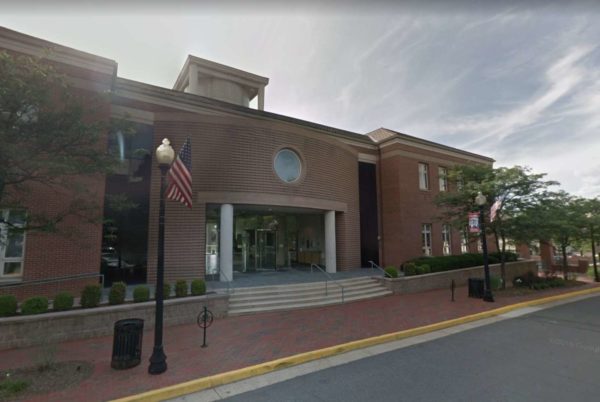
The Town of Herndon has taken its initial steps toward utilizing federal funding earmarked to help alleviate the impact of the COVID-19 pandemic.
The Herndon Town Council approved the allocation of the town’s funds from the American Rescue Plan Act of 2021 (ARPA) during a public session on Tuesday (Aug. 10). However, the budgeting of the funds will take place in the future as the town reviews capital projects and other operations and maintenance needs.
“This is the initial [move] just to kind of get the town started,” Herndon Director of Finance Robert Tang said. “We can do future budget amendments and re-appropriations as needed.”
Passed by Congress and signed by President Joe Biden in March, ARPA allocated $350 billion to assist state, local, territorial and tribal governments affected by the pandemic, establishing the Coronavirus State and Local Fiscal Recovery Fund.
Virginia’s windfall included over $633 million to provide a “substantial infusion to local governments” that are in turn meant to help turn the tide on the pandemic, address economic fallout, and lay a foundation for a strong and equitable recovery, according to Tang.
Herndon received a first installment of $12.7 million, and a second installment of roughly the same amount is expected in summer 2022, giving the town a total of $25.5 million in relief funding.
The funds can be used to address public health expenditures, negative economic impacts caused by the public health emergency, lost public sector revenue, premium pay for essential workers, and water, sewer, and broadband infrastructure investments.
Tang detailed plans for the funding to support operations, maintenance, and capital projects from fiscal years 2020 and 2021 in order to recover and prepare for another potential economic downturn.
The focus points include addressing the pandemic’s negative economic impacts, supporting safe operations and working conditions for staff, replacing lost public sector revenue, and funding water and sewer projects.
However, Tang told the town council that there are a variety of challenges to meet, including vague and shifting guidance from the US Treasury and the need to follow proper procurement, documentation, reporting, and monitoring requirements.
The ARPA funds are subject to audits to ensure they are utilized for their intended purpose. Funds that are deemed to be improperly utilized would have to be paid back.
Mayor Sheila Olem said that once a spending plan is created for the town, the council will have further public hearings before approving the final allocation of these funds.
The ARPA funds must be allocated by Dec. 31, 2024, and expended by Dec. 31, 2026.
Photo via Google Maps

Fairfax County Gave Republican Governor Nominee Tax Break — “GOP gubernatorial nominee Glenn Youngkin and his wife last year successfully petitioned Fairfax County to designate their horse farm as an agricultural district, which led to a 95% reduction in the taxes they pay on the 31.5-acre property in Great Falls that surrounds their home.” [Richmond Times-Dispatch]
Material Costs Drive Up Silver Line Phase 2 Costs — “The Metropolitan Washington Airport Authority is having to pay an extra $20 million to cover the higher cost of materials needed to build the extension of Metro’s Silver Line…So far, the construction’s progress has eaten up $2.464 billion, but the airports authority maintains the [$2.778 billion] budget won’t change, thanks to contingency funds.” [Washington Business Journal]
County Redistricting Committee to Meet Next Week — Fairfax County’s 20-person Redistricting Advisory Committee will hold its first meeting on Tuesday (July 27) at 6 p.m. at the Fairfax County Government Center. Open to the public, the meeting will focus on legal requirements, equity, and bylaws as the group prepares to recommend new electoral boundaries for the county’s supervisor and school board districts. [Fairfax County Government]
Reston Hospital Hires New Executive — Allyssa Tobitt will serve as Reston Hospital Center’s new chief operating officer starting Aug. 2. Replacing Ben Brown, who moved to Dominion Hospital in West Falls Church, she worked at the corporate office of Reston Hospital’s parent company HCA Healthcare in Nashville, Tennessee as well as at hospitals in its for-profit health system near Miami and Tampa, Florida. [HCA]
Photo via vantagehill/Flickr
Fairfax County will hold more summer classes for students with disabilities later this month after staffing issues put the program in jeopardy.
After families were informed that a teacher deficit was delaying the Extended School Year program, the school district adjusted it into two blocks, the first of which is already underway, to allow it to keep class sizes low but do more with less staff.
“We’re in a special education crisis,” Fairfax County Public Schools Superintendent Scott Brabrand said Tuesday (July 13) during a work session with the school board.
He noted around half of the 400 job openings that the district currently has involve special education, but according to the school district, a second Extended School Year block is “almost fully staffed.”
“There is a full commitment that we will have a fully staffed second session of the ESY,” Mount Vernon District School Board Representative Karen Corbett-Sanders said, adding that FCPS notified families and provided a timeline for transportation, food services, and more.
Earlier this month, FCPS apologized for communications that suggested the “administration was faulting teachers for failures of the system to supply optimum programming.”
“Our staff members have gone far beyond ordinary expectations and we are grateful for their professional dedication,” the district said on social media.
While officials praised teachers and administrators for making services work this summer, FCPS is looking to build within its own ranks to help address long-term faculty shortages.
School officials are working to apply for COVID-19 relief from an ESSER III fund (Elementary and Secondary School Emergency Relief). The money comes from the $1.9 trillion stimulus in the American Rescue Plan Act, passed by Congress and signed into law in March.
Previous federal COVID-19 relief plans included ESSER funds administered by state education departments, though local school districts had to apply to obtain the funds.
The school board was slated to vote on a plan for how to spend the roughly $189 million that FCPS is seeking when it meets tomorrow (Thursday).
The money would cover a three-year span, starting with the upcoming school year through June 2024. Intended to help schools safely open after a challenging year due to the pandemic, the funds can be used to support school operations and address students’ social and emotional needs.
The proposed plan would allocate $46.2 million to special education staff, which amounts to a 7% salary increase to cover the extra 30 minutes needed each day to file Individualized Education Program paperwork due to the pandemic, according to FCPS.
The funding sought would also involve around $2.5 million for professional development. According to Tuesday’s presentation to the school board, that effort would involve two new employees each year. It isn’t immediately clear if that’s all for salaries or if other expenses are involved.
Other requests include $54 million for academic interventions, $2 million for cybersecurity, $15.9 million for after school programming and transportation at high schools, and $20.1 million for a summer 2022 learning program.
Board members pressed FCPS officials for more accountability and strategic planning in its plans for the federal funds. Community members previously weighed in through focus groups in May and June, online feedback, and a June 7 public hearing.
Wilda Smith Ferguson, a parent of a child with special needs in the district, said during the June meeting that the school system’s decisions regarding protocols haven’t taken children like hers into consideration.
“She is totally dependent on her teachers and the support staff at the high school that she attends,” Ferguson said. “I would like to see some of the money in the grant go to, basically, instead of ‘trickle down,’ trickle up. Figure out what is best for the most vulnerable and work up.”
The deadline for FCPS to apply for ESSER funds is Sept. 1.
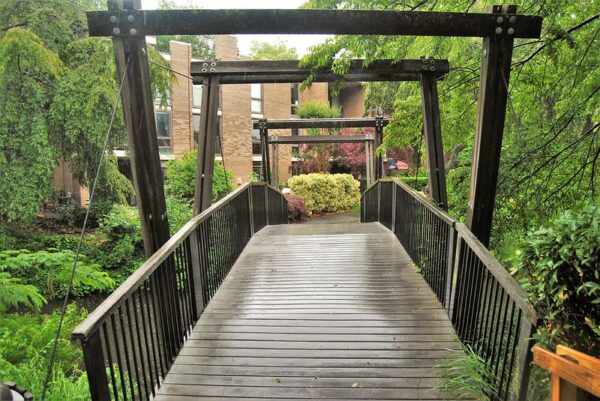
Gun Discharged in Reston — According to Fairfax County police, a homeowner in the 1700 block of Torrey Pines Court reported hearing gunshots around 2:49 a.m. on Thursday (June 10). The individual found damage to a car and property, but no injuries were reported. Officers located cartridge casings nearby. [FCPD]
Teen Injured in Herndon Car Crash — A 14-year-old boy was hit by an SUV at the intersection of Centreville Road and Parcher Avenue in Herndon on Friday (June 11). The boy was taken to a hospital with serious injuries, police said. [FCPD/Twitter]
County Health Department Took on New Roles during Pandemic — The Fairfax County Health Department ceased in-person inspections of food establishments, pivoting instead to a virtual process intended “to minimize possible COVID transmission between Health Department staff and restaurant employees.” Other staff in the food safety program shifted responsibilities, such as working call centers or supporting vaccination clinics. [Fairfax County Times]
How Northern Virginia Is Spending COVID-19 Relief Funds — “Fairfax County, Virginia’s most populous jurisdiction, expects to receive $200 million of Rescue Plan funds over the next two years, officials there said. So far, $50 million of that has been dedicated to specific uses: to help the hard-hit hospitality industry and, over the longer term, to preserve and create more affordable housing in the county, officials said.” [The Washington Post]


